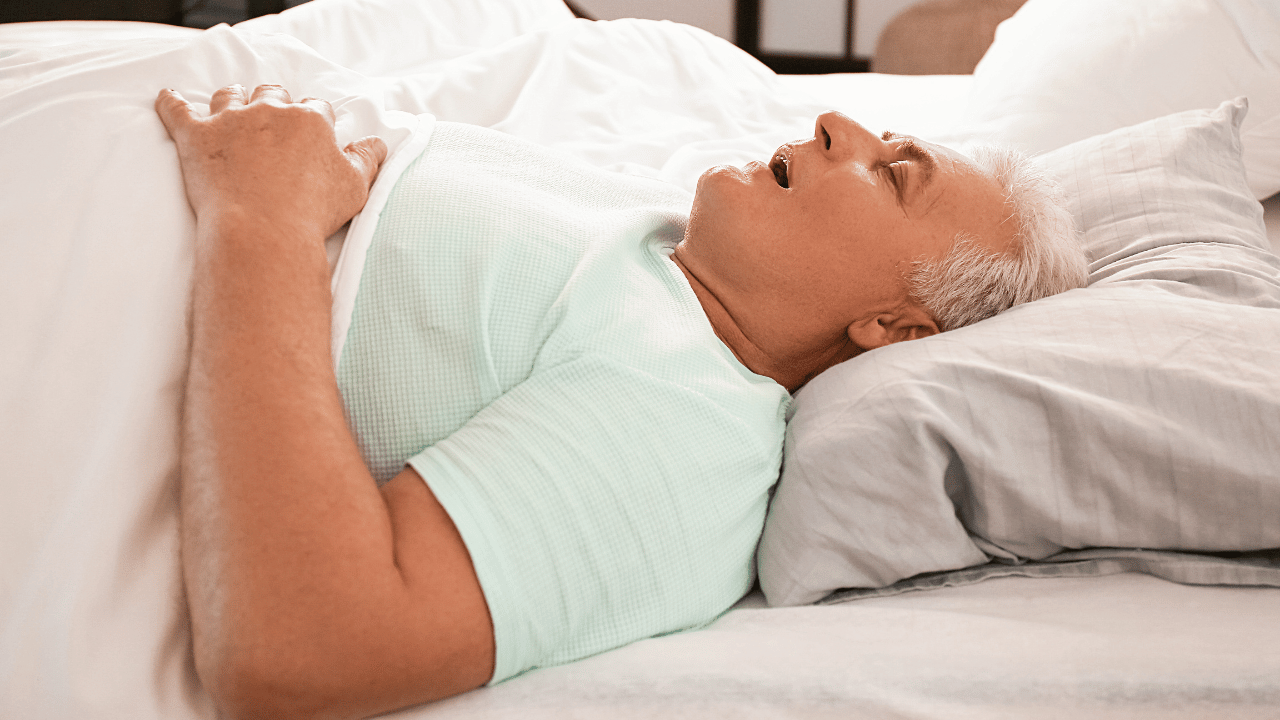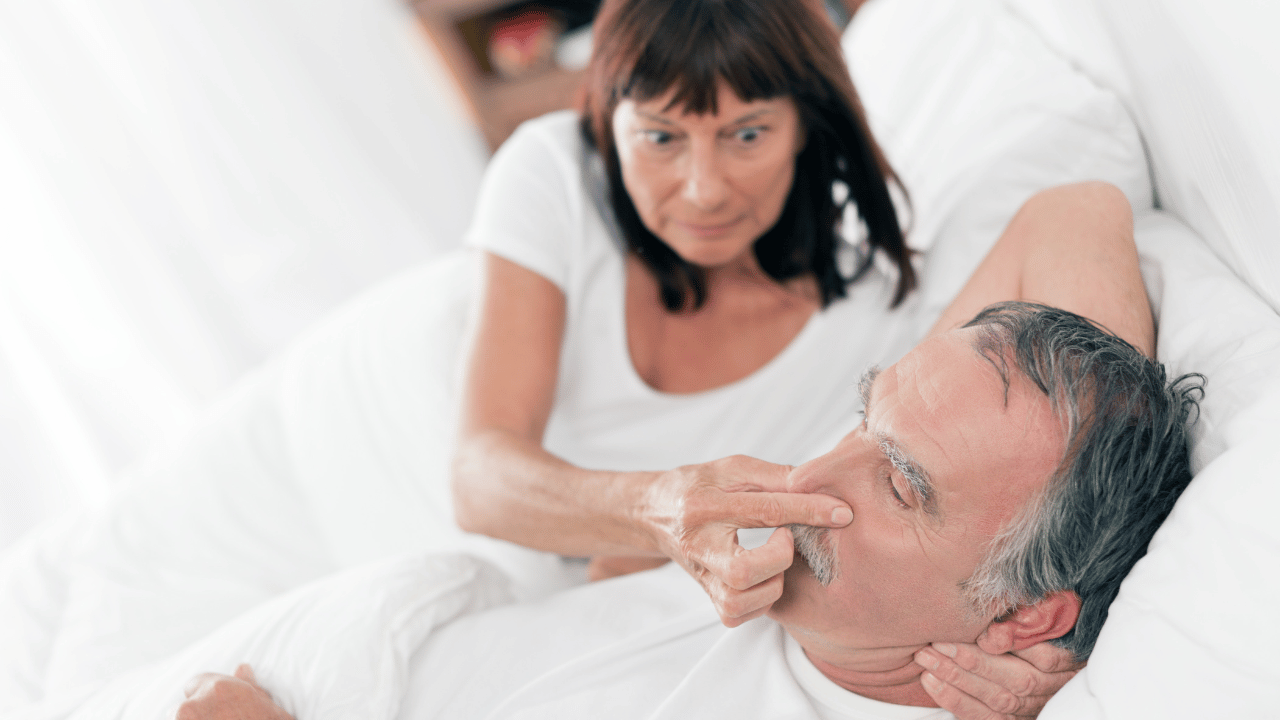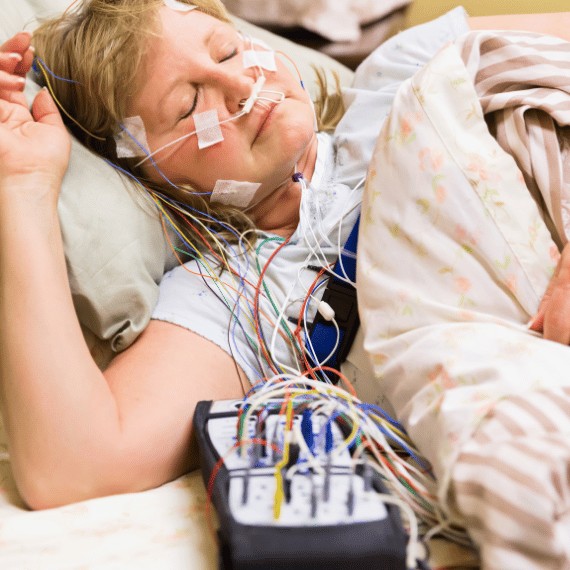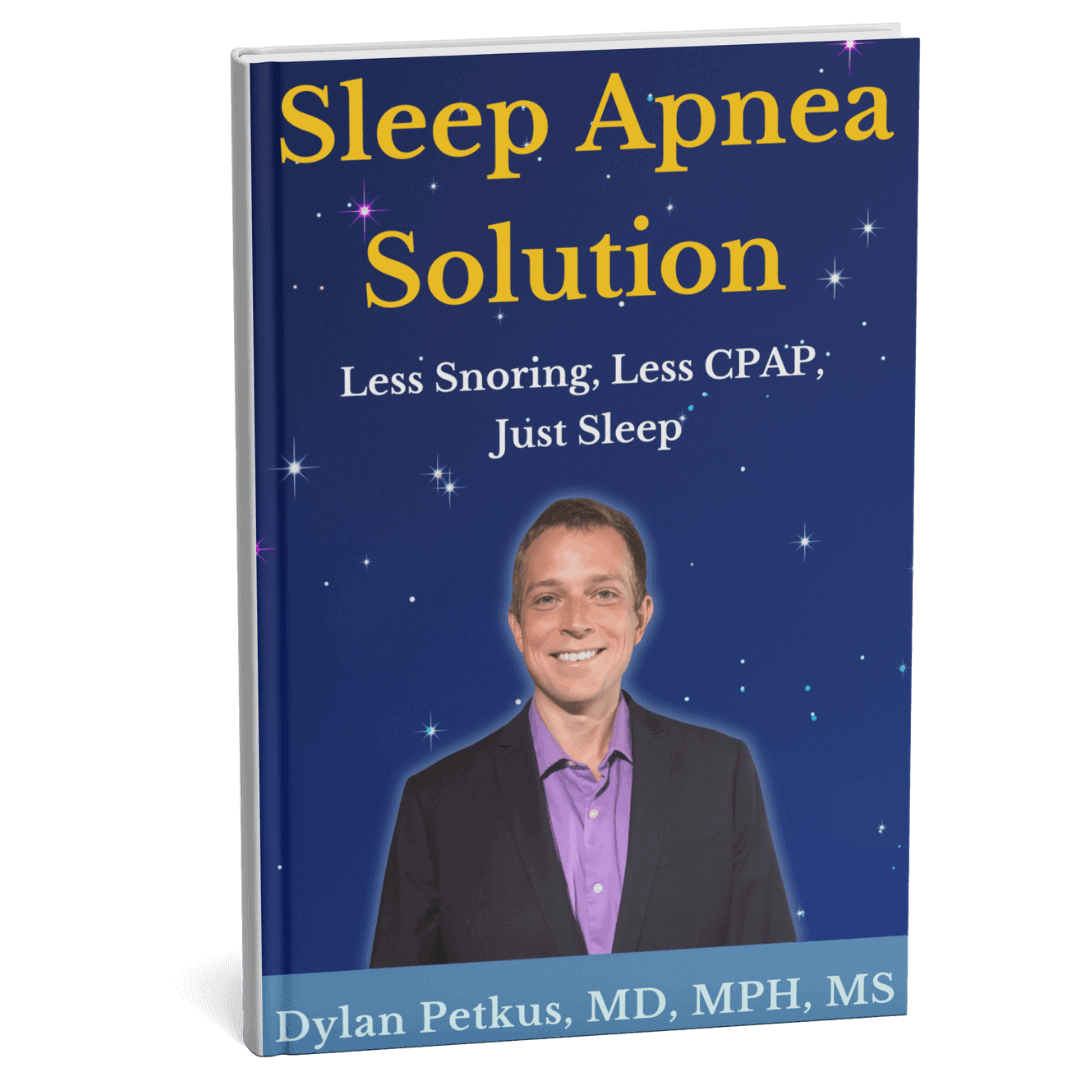
Snoring and sleep apnea often go hand-in-hand. Due to the restriction or blockage in their airways, people with sleep apnea experience faster breathing and intermittent pauses during the night. This often causes frequent disruptions to their sleep pattern, alongside snoring.
Although it is common for snoring to be a symptom of sleep apnea, these two factors are not necessarily mutually exclusive. For instance, a person could have sleep apnea without any snoring, and another might snore regularly but have no indications of sleep apnea.
Like so many conditions, each person’s experience may be unique, and there are multiple potential symptoms, which you might notice all at once, only some of the time, or not at all. Our Sleep Apnea Solution book provides further expert insights to help you understand your sleep apnea, how and why your symptoms occur, and breathing exercises and techniques to promote restful, restorative sleep every night.
Understanding the Relationship Between Snoring and Sleep Apnea
Most sleep apnea sufferers snore. However, healthcare professionals don’t rely on a history of snoring to determine whether a person has sleep apnea. An article published by the National Library of Medicine explains that because around 45% of men and 25% of women snore habitually, this is too common a symptom to be a reliable way to assess a person’s sleep.
While between 70% and 95% of sleep apnea patients have snoring as a symptom, it is considered more appropriate to analyze it alongside other symptoms. Those signs might include:
- Pauses in breathing during the night, often followed by waking up or gasping for air
- Headaches and a dry mouth in the morning
- Fatigue and sleepiness in the day, even if the person perceives they have had a good night’s sleep
- Difficulty concentrating or remembering things
- Feeling irritable, anxious, or depressed
Can you have sleep apnea without snoring? As we’ve clarified, you can. The above list of symptoms is intended to educate about the potential ways sleep apnea is identified, but a small proportion of sleep apnea sufferers do not, and might never have, snored.

How Can You Tell if You Have Sleep Apnea?
One of the first steps to verifying whether you have sleep apnea is to make an appointment with your physician. They can review your symptoms with you and possibly refer you to a sleep specialist or other practitioner if you have severe symptoms impacting your life. Depending on your location and healthcare provider, you will usually be asked about the above symptoms and offered tests to check your breathing, heart function, lung capacity, and blood pressure to see if there are any underlying causes or issues.
Healthcare services may offer a sleep tracker you can wear overnight to monitor your breathing. These devices often use a system called ‘AHI scoring,’ which determines whether your sleep apnea is mild, moderate, or severe and may influence the recommendations made.
Some health conditions may make you more likely to develop sleep apnea. This is not a foregone conclusion, and it does not mean you will not experience health challenges! However, conditions like high blood pressure and diabetes are often comorbidities where sleep apnea poses a risk factor, alongside other aspects of a person’s overall health profile, such as whether they maintain a healthy weight and active lifestyle.
Can hypertension cause sleep apnea? Potentially, it can. When your breathing is erratic at night, the variations in your heart rate and blood pressure strain your cardiovascular system. This means it could be important to overcome disturbed nighttime sleeping in the interest of your long-term wellbeing.

What to Do After Discovering You Have Sleep Apnea
Whether you have been officially advised that you have sleep apnea or have long struggled with disordered sleeping, fatigue, and headaches, several options can help, in addition to or instead of conventional sleeping aids, like a CPAP machine. Much may depend on your preferences, but people often find that breathing techniques and changing their sleep environment and nutrition can be profoundly beneficial and ensure they are taking action to enhance their natural sleep.
Further information about all these options, including guided audios and an individualized Sleep Apnea Assessment, is readily available through the Optimal Circadian Health website. You’ll also find a link to order your own copy of Sleep Apnea Solution!
References:
- Marshall NS et al. Sleep apnea and 20-year follow-up for all-cause mortality, stroke, and cancer incidence in the Busselton Health Study cohort. J Clin Sleep Med. 2014;10(4):355-362.



